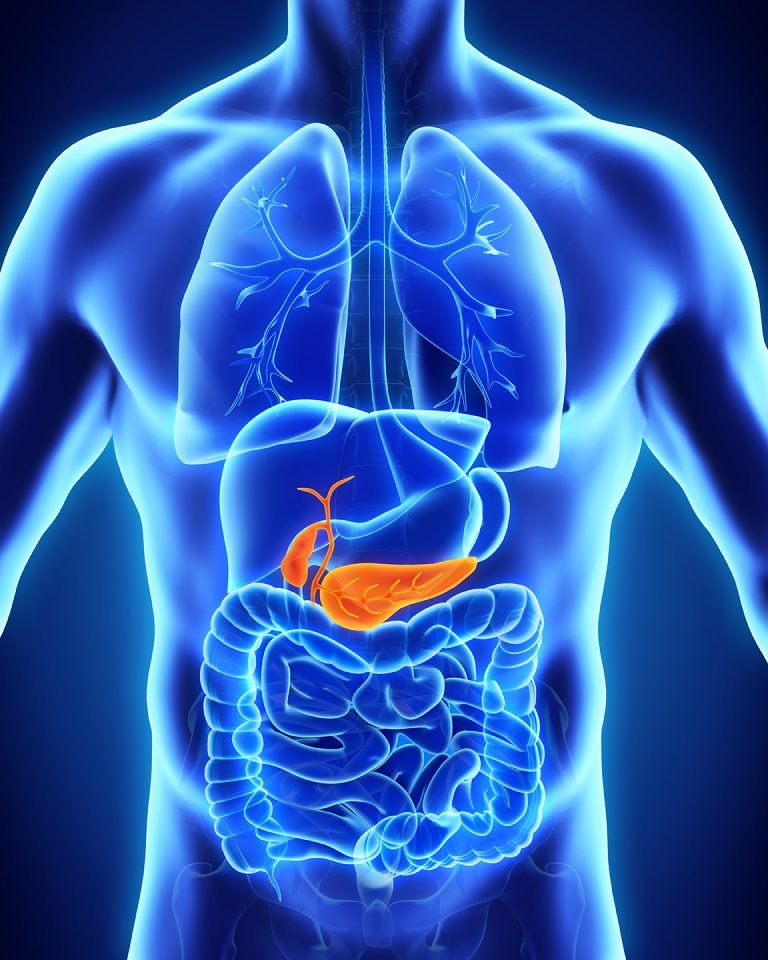What is Pancreatitis?
This post was originally published on the Mission:Cure website.
The first disease that we are tackling through our innovative approach is chronic pancreatitis. This disease is costly, painful, and patients are at a higher risk of developing pancreatic cancer. Today, there is no treatment for chronic pancreatitis, but there is hope. A group of researchers and clinicians at top medical centers around the world are working to discover ways to prevent and treat the disease. Pancreatitis patients and their families stand ready to participate in therapy development. At Mission: Cure, we are bringing stakeholders together to find a cure for chronic pancreatitis.
What is Chronic Pancreatitis?
Chronic pancreatitis is the inflammation of the pancreas, the organ that produces digestive enzymes and insulin. The continued inflammation leads to permanent damage and scarring of the pancreas. This scarring causes digestive problems and eventually leads to diabetes. Chronic pancreatitis patients experience extreme abdominal pain and are at exceptionally high risk for pancreatic cancer. Chronic pancreatitis affects about 200,000 Americans and over a million people worldwide. Chronic pancreatitis affects children (pediatric pancreatitis) and adults.
Unfortunately, for people suffering from chronic pancreatitis, there is no treatment. The only hope for some patients is the removal of the pancreas through a major surgery. This surgery is called total pancreatectomy and is associated with significant risks and side effects.
What Causes Chronic Pancreatitis?
Chronic pancreatitis can be caused by a genetic defect, physical injury to the pancreas, gallstones or other blockages, or medications. Alcohol abuse and smoking can contribute to chronic pancreatitis. For many chronic pancreatitis patients the cause is unknown.
Acute and chronic pancreatitis are often connected.
Many chronic pancreatitis patients first experience acute pancreatitis, a temporary inflammation of the pancreas that is very painful and can be deadly. Acute pancreatitis was the most common principal gastrointestinal diagnosis for hospital admissions in the US, costing over $2.6 billion in inpatient costs in 2007 alone¹.
Approximately 10-15% of people who suffer acute pancreatitis episodes develop chronic pancreatitis.
Potential Causes of Chronic Pancreatitis:
Genetic defects
Autoimmune disorders
High levels of calcium in the blood (known as hypercalcemia)
Decrease in the kidneys’ ability to filter waste and fluid from blood (chronic renal failure)
Physical injury to the pancreas
Gallstones
Blockages and obstructions to the pancreas
Medications
Drinking alcohol and smoking may contribute
There is usually not just one factor causing pancreatitis. Rather, it is a combination of genetic and environmental risk factors that can create a “perfect storm” for chronic pancreatitis. Still, for many patients the cause of pancreatitis is unknown.
Precision medicine is helping us better understand the causes of pancreatitis. Researchers are increasingly viewing chronic pancreatitis as a combination of lifestyle, environmental, and genetic factors.
What are the Symptoms of Chronic Pancreatitis?
Severe abdominal pain, in the upper belly
Pain in the back
Nausea
Vomiting
Weight loss
Diarrhea
Belly pain that increases when you eat or drink alcohol
Many patients who suffer from chronic pancreatitis struggle with getting an accurate, timely diagnosis. Chronic pancreatitis is a highly complex rare disease that is difficult to diagnose and treat.
The Isabel Symptom Checker allows you to enter a list of symptoms and view possible associated diagnoses.

